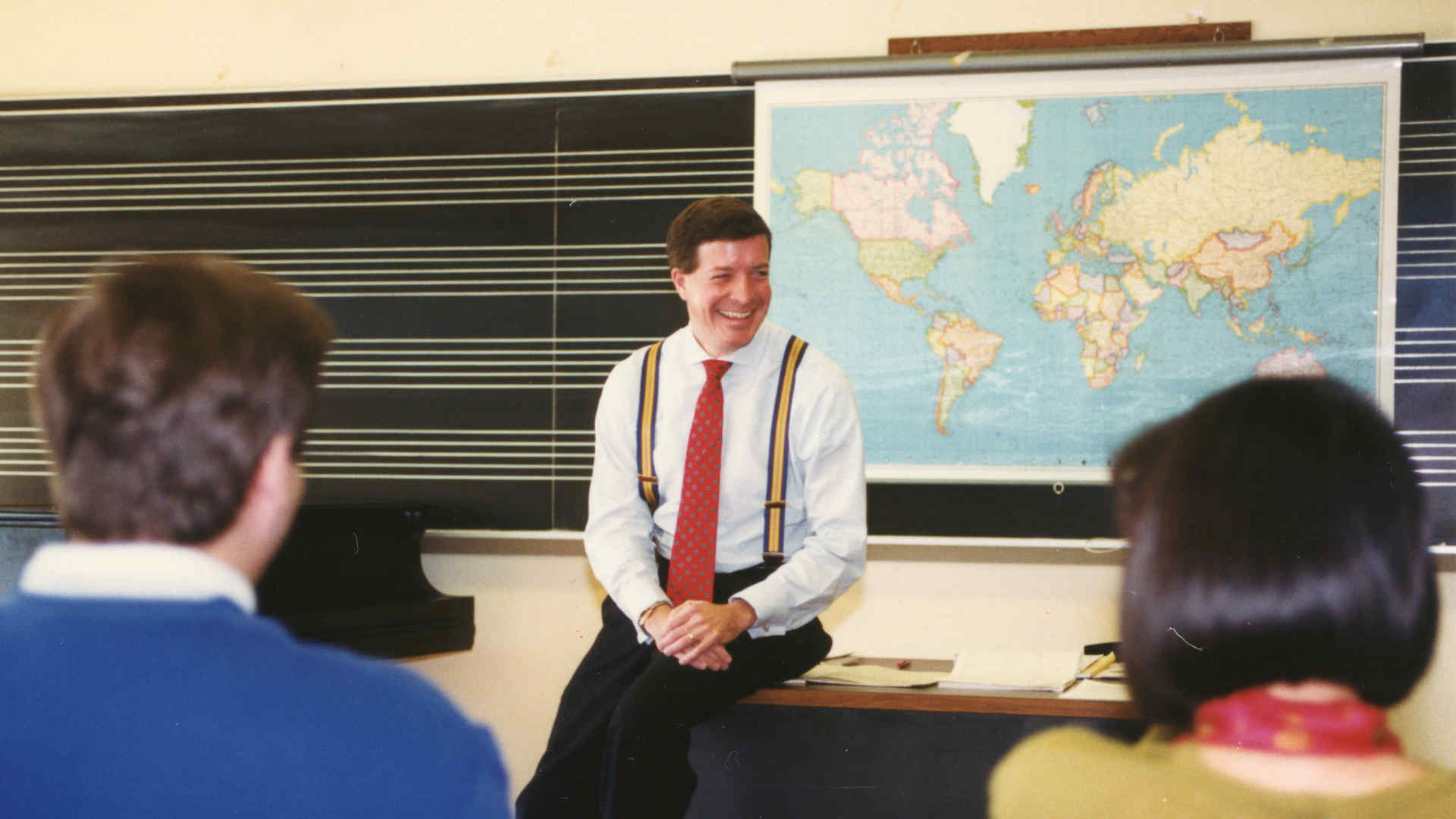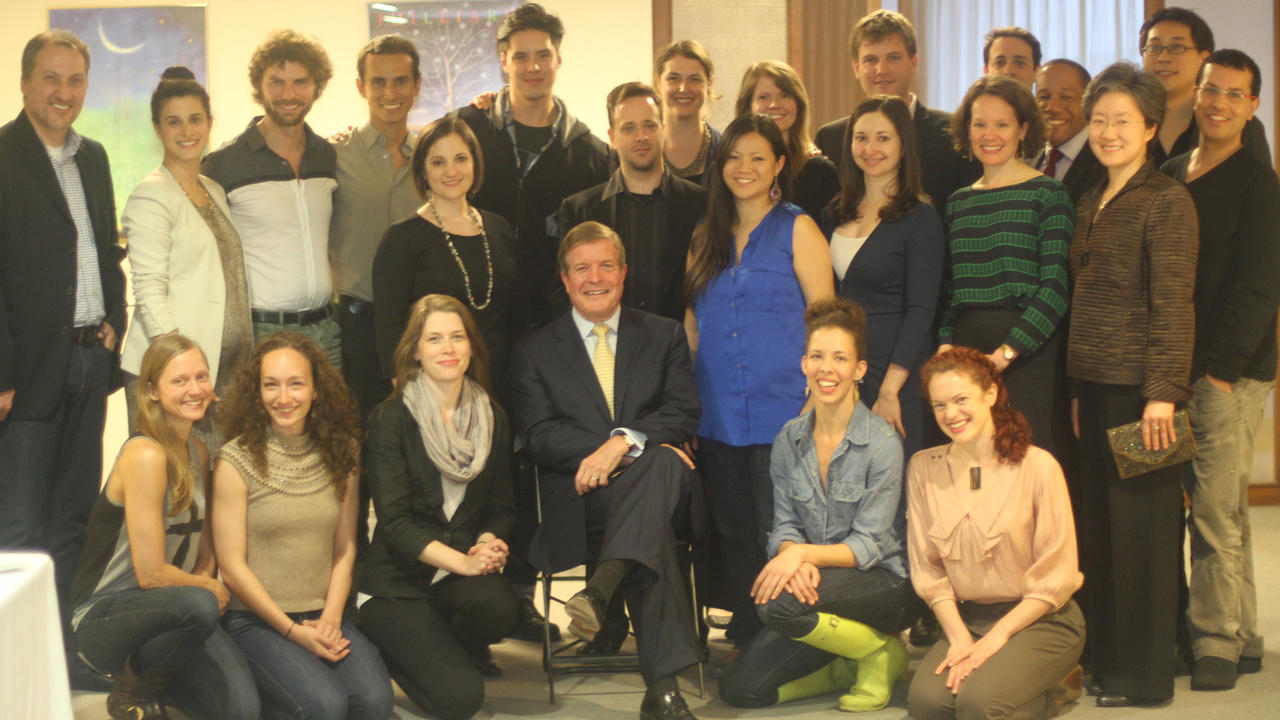
Running a college is a ton of work, but starting in 1993 and for 17 semesters throughout his time here, President Polisi carved out time to teach American Society and the Arts. So many graduates of the class—including quite a few leaders in the world of the arts—describe it as a transformative experience. Here Max Tan, one of the participants in Polisi’s last American Society and the Arts class, in 2016, talks about it.
Perhaps one of the most defining aspects of a Juilliard education is the active inclusion of a liberal arts curriculum with performing arts studies. This is only my third year at Juilliard, but I understand that this has been an important part of to President Joseph Polisi’s vision.
During the second fall of my master’s degree program, I elected to take a course called American Society and the Arts, which was taught by none other than Dr. Polisi. The goal was to understand the American Constitution thoroughly enough to engage in discussions about how the arts function as a fabric of society, and perhaps explore some of the basic legal problems that may arise in conflict with artistic visions, exhibitions, and performances. Many problems we explored, both from actual cases in the past few decades and from hypothetical situations, centered around questions about the First Amendment and whether free speech applies to all speech. By the end of the course, our understanding was that specific conditions exempted certain speech from that protection.

Certain rituals in the class were really memorable for me. We were encouraged (or should I say required) to read the New York Times every day. We presented current issues and events to the class at the start of each meeting, which would then develop into a lengthy discussion of their potential political or social effects. As the semester continued, we formed teams to present mock trial cases that Dr. Polisi presided over. The rest of the class watched as a neutral jury, asking questions to try to poke holes in the case. Some of these cases dealt with defining the roles of managers, curators, artistic directors, and artist companies; for instance, should artistic productions that contains vulgar language or nudity require censorship or an age limit for ticket sales? Some art contains vulgarity, nudity, and other things that might, in formal social etiquette, be considered inappropriate. How does one define what is artistic and what is not? Should public funding be used to finance such projects? Why—or why not?
Looking back, I realize that this was not only a fun exercise but also extremely practical. As students at a performing arts institution, our obligation to performances isn’t restricted to the stage and the work itself—it goes beyond to connecting with other colleagues in other fields, to audiences who come to experience something live. It encourages discussion and contemplation in the community, and as a result, builds a greater one. Dr. Polisi’s class made me a bit more knowledgeable and helped build habits that build on our curiosity—I remember it as one of the most personal and relevant experiences I’ve had at Juilliard.
Artist Diploma student Max Tan (Pre-College ’11; MM ’17, violin), who studied human development and regenerative biology as a Harvard undergraduate, holds Celia Ascher and Ryoichi Sasakawa Young Leaders fellowships